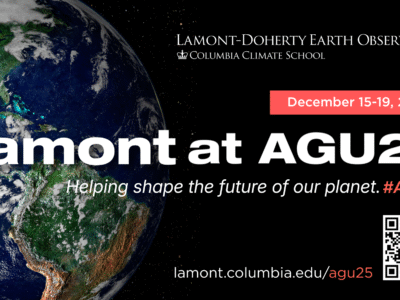Large tropical volcanoes have caused some of the world’s most destructive natural disasters, with eruptions spewing out massive streams of harmful gases and hot debris that can wipe out everything in their path. But, what about wider impacts on global climate? Large eruptions are well known to temporarily cool the planet, but the picture is less clear when it comes to changes in the global distribution of rainfall.
In a new study, a team of researchers from Columbia University’s Lamont-Doherty Earth Observatory, the University at Albany and other institutions have used natural climate archives such as tree rings to better understand big eruptions’ global hydroclimate impacts over the past 1,000 years. Their results suggest that changes often are significant, and have persisted for more than a decade. Most notably, they observed abnormally dry conditions over tropical Africa, Central Asia and the Middle East, and unusually wet conditions over Oceania and the South American monsoon regions. The results were published this week in the Proceedings of the National Academy of Sciences.
The team identified all the known tropical eruptions in the past millennium that were larger than 1991’s Mount Pinatubo eruption, the biggest of the last 100 years. Then, using natural proxies that record local moisture conditions over time, they analyzed the aftereffects.

“We have not had a major volcanic eruption in 30 years, so I think we tend to forget how large of a societal disruption they can cause,” said coauthor Matthias Vuille, a professor at the University at Albany. (Pinatubo caused average global temperature to drop 1 degree F over a 15-month period—the result of sulfur compounds high in the air that prevented solar energy from reaching the surface.) “Our proxy product adds new, real-world data to estimate the responses on a global scale, which suggests these eruptions can cause much larger and prolonged wet and dry anomalies than we initially believed.”
“The trees, and the other natural climate archives were there to see these volcanic eruptions happen. It’s not a theoretical construct,” said coauthor Jason Smerdon, at Lamont-Doherty. “This was the first time we were able to use this new proxy product as an estimate of volcanic climate responses in the past, and the picture it paints has yielded surprises in terms of how large and persistent the hydroclimatic impacts of volcanism can be.”
The new dataset used in the study, called the Paleo Hydrodynamics Data Assimilation (PHYDA) product, was created through a long-term project involving Lamont-Doherty scientists. PHYDA is a publicly available global reconstruction of temperature and hydroclimate conditions over the last 2,000 years, estimated by combining information from a climate model and a global collection of 2,591 tree-ring records, 197 coral and sponge records, 153 ice-core isotope records, 26 cave-sediment records, 10 lake-sediment records and one marine-sediment record.
Using PHYDA, the researchers compared their new proxy-estimated changes with those derived exclusively from an existing climate model, which showed less drastic results. They say that understanding discrepancies between the proxy-based product and a stand-alone climate model are critical for projecting how future volcanic eruptions may affect global climate, especially considering the added impacts of human-influenced climate change.
“If you look at past centuries and the frequency of large volcanic eruptions through history, it is very likely that we’ll see a similar-sized eruption before the end of this century, possibly more than one,” said lead author Ernesto Tejedor of UAlbany. “We believe our findings serve as an important warning that affected communities must not only think about immediate impacts, but that volcanic eruptions could lead to long-lasting changes in climate.”
The study’s other authors are Nathan Steiger of Lamont-Doherty and Hebrew University of Jerusalem, and Roberto Serrano-Notivoli of the Autonomous University of Madrid. The study was supported by the U.S. National Science Foundation.
Adapted from a press release by the University at Albany.




I wish that we could hear more about the effects of volcanoes on climate. Recently I have read about volcano eruptions but no comments about how these could affect our weather conditions and climate.